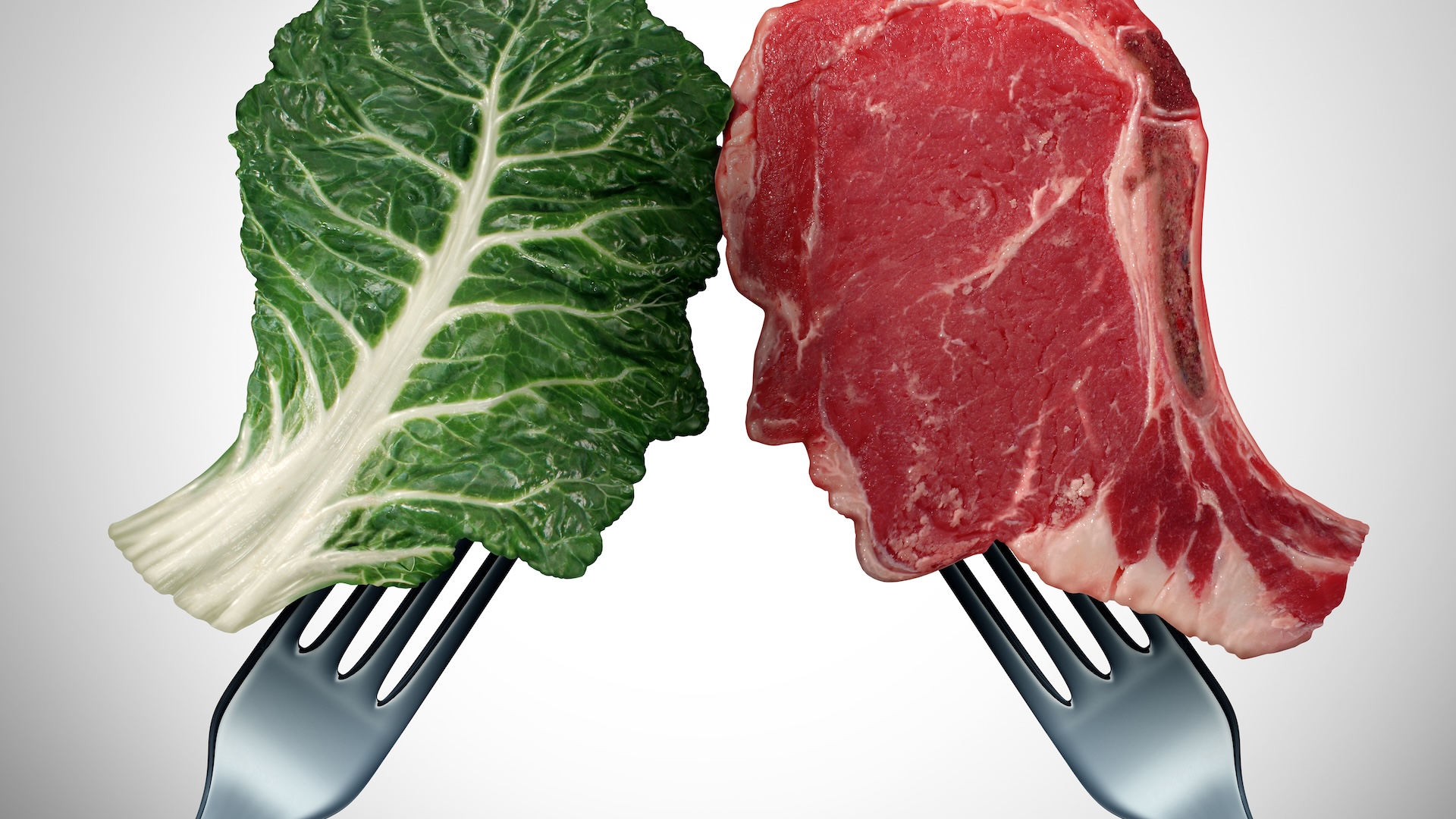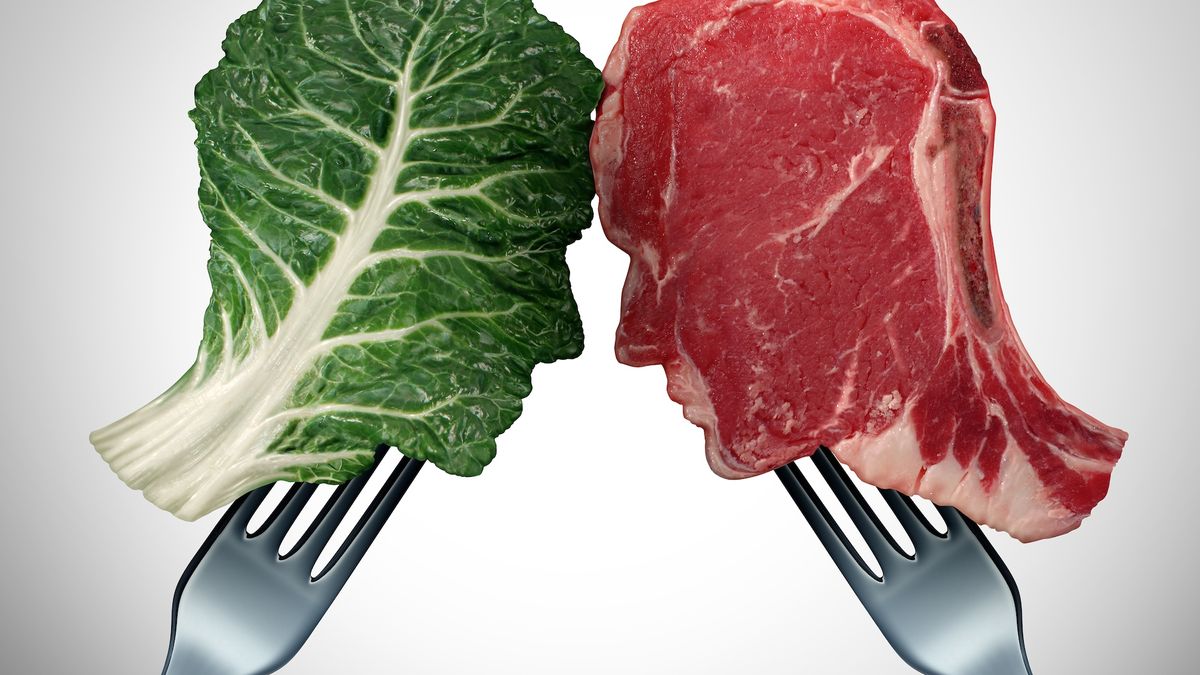
It’s well known that vegetarians and vegans need to work a little harder to get their protein. Even popular meat replacements often aren’t as protein-dense as their animal-based counterparts; for example, tofu has about 8 grams of protein per 100 grams, whereas chicken breast has 31 grams.
But why, on a biological level, does meat generally contain so much more protein than plants do?
According to Christi Calhoun, scientific communication resource officer at the American Meat Science Association, the main reason is that plants and animals have different cellular needs, which result in different cellular compositions.
“Animals store more protein in their tissues because their bodies are designed to support active functions such as muscle movement, energy metabolism, and cellular repair,” Calhoun told Live Science in an email. Key molecules in animals’ bodies like enzymes and hormones are actually just specialized proteins, and other proteins like actin and myosin make up muscle fibers and enable active movement.
“Plants, on the other hand, rely more on carbohydrates and other molecules for structure and energy storage,” Calhoun continued, “so their tissues naturally contain less protein.”
While carbohydrates are an important energy source in both plants and animals, they can’t complete the same diverse cellular functions that proteins can due to their simpler molecular structure.
But total protein levels don’t tell the full story; it’s also important to consider the kind of protein. To do that, it’s necessary to understand protein on a molecular level.
“One can imagine proteins as “beaded necklaces”, each bead made up of different amino acids,” Kinga Balogh, a registered dietitian at JM Nutrition in Canada, told Live Science in an email. She said human bodies “string together a wide variety of ‘necklaces’ from various amino acid ‘beads'” to fabricate different proteins for different functions.
There are 20 types of amino acids, and each plays a unique role in cellular processes such as tissue repair, nutrient transport and brain function. Nine of these are called essential amino acids, because the body cannot produce them on its own. Humans need to get essential amino acids through their diet.
Animal-derived proteins contain all nine of those essential amino acids, so they’re classified as “complete” proteins. Proteins from plant sources, on the other hand, are often missing one or more of the nine essential amino acids, making them “incomplete” protein sources.
Related: What happens to meat as it’s cooked?
What’s more, the body processes proteins from animal and plant sources differently.
“Animal proteins, such as those in meat, have higher bioavailability,” Calhoun said. That means that the human body can break down and absorb those proteins more easily. Because plant proteins can contain more indigestible materials, like fiber, the body needs to work harder to process that protein.
In 1993, the U.S. Food and Drug Administration and the World Health Organization developed a scale that quantifies different protein sources based on their amino acid composition and overall bioavailability. The scale, called the Protein Digestibility Corrected Amino Acid Score (PDCAAS), outputs a score between 0 and 1, with 1 indicating high protein quality and 0 indicating low.
According to a compilation of PDCAAS scores presented at the International Society of Sports Nutrition Symposium, beef and eggs have scores between 0.9 and 1, black beans get a 0.75 and peanuts are rated 0.52. However, soy — the basis of products such as tofu and tempeh — achieves a plant-based high score of 0.92.
These differences make it difficult to directly compare plants and animal products based only on total overall protein. “Only looking at total protein or ‘crude’ protein does not tell the full story of a food’s impact on human health,” Calhoun said.
Although meat tends to have higher overall protein content, more essential amino acids, and more bioavailability, it’s still possible to leverage nutritional science to make plant-based proteins more efficient.
“When it comes to vegetarian or vegan diets, folks have the option of combining multiple plant-based foods that contain incomplete proteins,” Balogh said. This strategy allows people to combine two or more incomplete proteins to check off all nine essential amino acids. Balogh said examples of these pairings include whole-wheat toast and nut butter, beans and rice, or lentil soup with a whole-grain roll.
Still, Balogh cautioned that “laser-focusing” on protein isn’t always the best strategy.
“Our human body performs well when we consume a wide variety of foods in amounts that meet daily requirements consistently,” she said. “Proteins function most effectively in the human body when we also consume adequate amounts of energy, carbohydrates and fat.”

